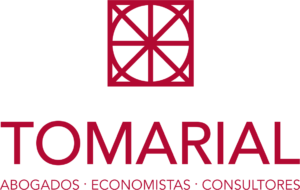2017 ANNUAL TAX CONTROL PLAN.
The Official State Gazette published, on January 27, 2017, the Resolution of January 19, 2017, of the General Directorate of the State Tax Administration Agency, approving the General Guidelines of the Annual Tax Control Plan and Customs 2017.
The main objective of this new Tax Control Plan is the fight against tax fraud, in relation to those taxes, their own and assigned whose management corresponds to each Autonomous Community.
During fiscal year 2017, the Tax Administration will carry out a series of actions to prevent and control economic-social fraud, primarily focused on the following areas of tax control:
- Submerged economy, fighting those practices that involve the provision of services or the sale of goods without the adequate impact of Value Added Tax.
In this sense, the lines to highlight in which the Treasury is working, are:
- Implementation of the Information Supply System (SSI), for the immediate control of the activity billed between the different entities.
- Verification actions by the Tax Administration that reinforces fiscal transparency in relation to those economic activities with final consumers, in which a risk of non-compliance with formal tax obligations in relation to Value Added Tax may be induced. not proceed to the repercussion of it.
- Patrimonial investigation of natural persons, through the elaboration of new norms or international agreements that prevent diverting income from accounts opened abroad or the concealment of assets abroad.
We highlight the agreement between the Kingdom of Spain and the United States of America (Act-FACTA) that entered into force on July 2014, XNUMX and that is allowing the Tax Agency to obtain information automatically.
- Tax avoidance practices of multinationals and companies with cross-border activity.
The Tax Administration continues to work on the exchange of information with the different countries from the internal regulatory development together with the conciliation of international agreements or conventions as well as in the collaboration, by the Tax Agency, with the OECD to promote the BEPS project and fill any existing legal gap, with respect to linked operations carried out between legal persons, as well as those carried out between companies with their partners.
- Digital economy and new business models.
The use of technologies as a payment instrument (platforms, mobile devices, etc.) requires the Tax Agency to prepare new programs to collect information on the Internet about risk operators to discover hidden activities or returns, as well as guarantee adequate taxation regarding the provision of services or delivery of goods made electronically.
On the other hand, the Tax Agency will carry, together with the areas of priority control indicated, control in other sectors or regimes on which it has developed its actions in previous years. Next, we point out, in detail, each of the lines of action that the Tax Administration continues to develop.
The first action consists of the control and verification of the returns provided by taxpayers whose main activity is the provision of professional services whose purpose is to verify that there are no signs of wealth that are not consistent with the history of income tax returns or pre-existing heritage.
Likewise, the Tax Agency will focus on the control of the following operations related to Value Added Tax (hereinafter, VAT):
- Sustaining the preventive control measures of the Registry of Intra-Community Operators to restrict access exclusively to operators with real economic activity who do not participate in irregular practices.
- Control in intra-community operations and, especially, to imports that are the first delivery of electronic material or components not covered by the taxpayer's investment.
- Restrict fraud caused by undervalued imports followed by submerged economy sales on consumer products
- Customs Control and Inspection, avoiding the abuse of the VAT tax deposit system.
- Analysis of the periodic information to be provided by the owners of the establishments, other than tax deposits and customs deposits, regarding the impact of the Special Tax fees.
- Control of VAT reimbursement supported on purchases of goods made by travelers not resident in the territory of application of the tax.
Second, the Tax Administration will focus on tax control in relation to taxpayers covered by the special tax consolidation regime of Corporation Tax or special regime of the group of VAT entities.
Thirdly, and in relation to the customs field, this year the Single Customs Window will be consolidated, which aims at the clearance of merchandise at customs through the use of highly qualified computer systems that allow obtaining greater coordination between the different services of border inspection.
Fourth, the Tax Agency will continue its work of prevention and repression to dismantle the logistical and financial apparatus of organized networks dedicated to illegal businesses such as smuggling, drug trafficking and money laundering.
Finally, the State Tax Administration Agency will not only initiate these new action measures for the prevention and control of fraud, but will also develop, as in previous years, its usual activity in the collection phase and in collaboration with the Autonomous Communities.
Text: Carla Alberola Ruíz de Adana. Fiscal Area Collaborator
Tomarial Abogados and Tax Advisors
www.tomarial.com

